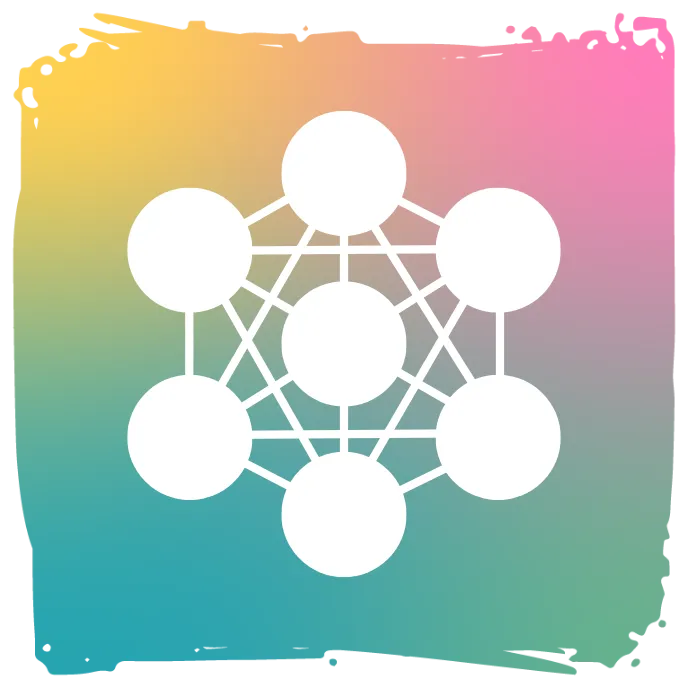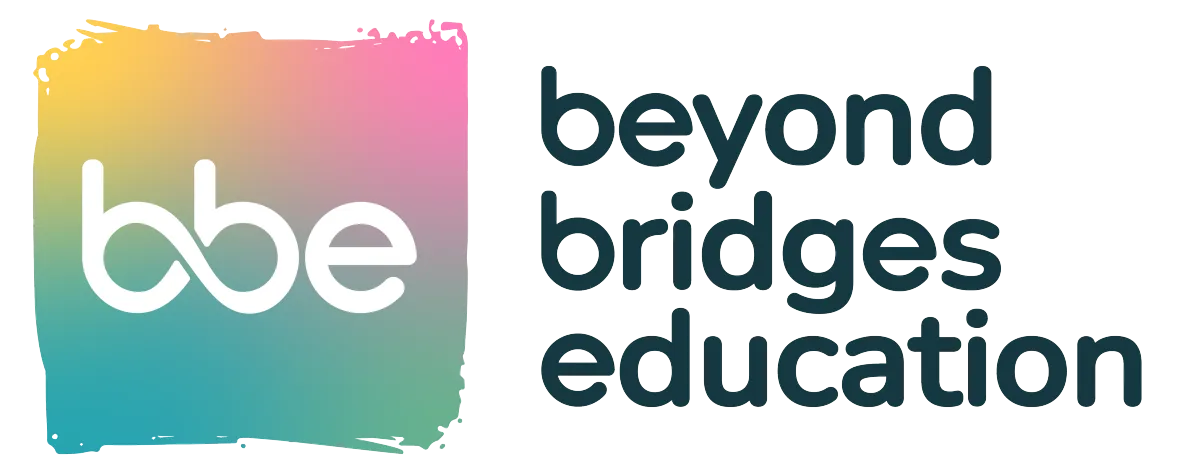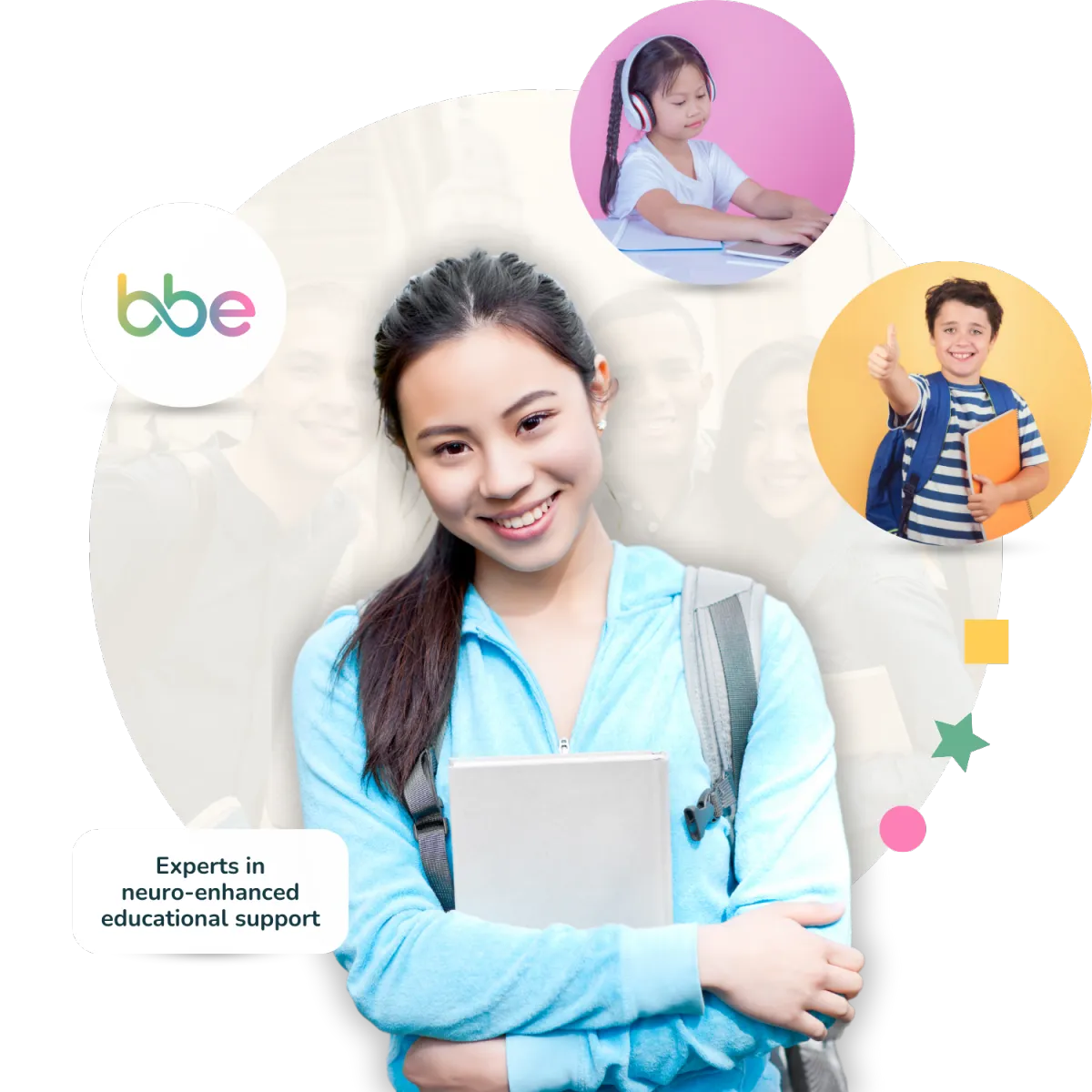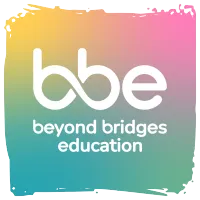
Experienced Educators

Child-Centred Approach

Compassionate & Inclusive

Building Collaborative Teams
Welcome to Beyond Bridges Education
At Beyond Bridges Education, we are here to provide holistic and personalised support for children who learn differently, working closely with families and schools in the UK and internationally. Our goal is to help children feel seen, heard, and understood, while fostering a true love for life and learning.
Our approach is built on 3 Key Pillars, or the 3As
Awareness: Understanding how your child thinks, feels, behaves and relates to the world around them.
Adaptations: Offering practical, easy-to-apply strategies and solutions for both home and school.
Advocacy: Supporting you in building a collaborative team around your child.

Experienced
Educators

Child-Centred
Approach

Unparalleled
Commitment

Cultural
Sensitivity





If your child is facing challenges at home or in the classroom and you would like to chat about what’s going on, we would love to listen.
What our families and schools say about us

What sets Lisa apart is her unique blend of honesty and support. She has an uncanny ability to provide constructive feedback in a way that encourages growth and inspires improvement. Lisa's straightforward approach ensures that her observations and recommendations are always well-received by our staff. Her genuine desire to see us succeed has created a culture of trust and openness, enabling our teachers to embrace change and strive for continuous improvement.
School Principal - UK

Lisa recognises that every family, and every child, is different and always seems interested to learn the special aspects of each person in order to help them leverage their own strengths while also assisting them with developing new approaches. In Lisa’s sessions with my son, her natural ability to connect with him on his level is evident and she always makes the experience fun for him too.
Parent - Canada
Services for Families
We are here to guide families through every step of their child's educational journey, ensuring that every child receives the tailored support they deserve.

Strengths Based Assessment
Our strengths-based assessment process is designed to provide you with comprehensive insights tailored to your child's unique needs.

Team Around The Child
Our TAC Services are designed to provide continuous support to you and your child throughout their educational journey.

Specialised tutoring
Our approach stands apart from traditional tutoring programs, as we prioritise a holistic focus on various aspects of development beyond academic subjects.
Services for Schools
We support schools by providing professional development in inclusive education. We develop teachers' adaptive teaching skills and help them grow in confidence to support students with learning differences, enhancing academic and well-being outcomes.

Our Latest Blogs

"I understood Maths today!"
“The child begins to feel seen, heard and understood.” - BBE
These are the words that make your heart sing!
“I understood Maths today!” declared a child whose stomach twisted into knots, at the mere thought of attending maths lessons, prior to her assessment and diagnosis of dyscalculia. Her teacher shared that she now asks, “what are we doing in maths today?”, instead of shying away from mathematical learning. Another parent we work told us, “I’ve just asked our son how he’s feeling about maths, and he said he’s feeling good and feels like he’s getting better and better! That’s actually a lovely thing to hear him say! There does seem to have been a shift in his outlook since you assessed him!”
But how does this shift occur? What are the underlying processes that enable such a profound change in mindset?
Before we offer an explanation, let's provide you with a context. Both of these primary aged children have been experiencing challenges in mathematical learning. Their families were becoming increasingly anxious about their children’s dwindling morale and self-belief in maths learning. Teachers observed struggles with recalling times tables, recognising patterns, or grasping concepts like time. Amidst these struggles, each child displayed remarkable talents in other areas, indicating there were experiencing domain-specific difficulties. Seeking answers, these families turn to us at BBE for comprehensive educational assessments. After an in-depth intake conversation, we understood that the challenges each child was facing seemed to be persistent and long-term. During the assessment, we were able to explore through psychometric testing each child’s approach to solving mathematical problems, conceptual understanding, their mathematical fluency and accuracy, as well as their overall achievement levels. However, our BBE educational assessments, in addition to psychometrics, are much more granular. Through careful questioning, gentle probing and observation of non-verbal cues, we gain a great deal more understanding about each child’s inner world and their sense of self as a mathematical learner.
Let's delve into the neuro-enhanced science behind this transformation. We can tune into an individual’s emotional state through their non-verbal communications such as vocal tone or prosody. A monotonous or flat voice may convey emotional detachment or stress in response to the experiences they have felt or feel in that moment when having to perform mathematics. In addition, we can notice the physiological changes that may occur when a child is performing a task, such as increased heart rate, reddening of the cheeks or the ears, clenching of fists, eye muscles tightening, change in body position, etc. In noticing these micro-movements and signals we can apply mechanical and neurological perspectives to explain these behaviours. It is important to add that most of the time, these signals occur subconsciously! It’s our body-brain response that is within all of us.
It is not uncommon for something to shift for children after the assessment and there is good neuro-enhanced reasons for this! During assessments, we not only scrutinized their cognitive abilities but also tuned into their emotional states through non-verbal cues. Changes in vocal tone, physiological responses, and body language offered invaluable insights into their inner experiences. This process of attunement, wherein assessors synchronise their emotional states with the child's, fosters a sense of psychological safety and understanding where the child begins to feel seen, heard and understood.
But what fuels this transformation at a neurological level?
There are many mechanisms at play but the most interesting relating to the interaction between the BBE assessor, child and family, are the following:
Mirror Neurons: Enter mirror neurons, the silent architects of empathy. These neurons allow us to mirror the emotional states of others, fostering a deeper understanding of their experiences. Coupled with emotional contagion and activation of social brain networks, this forms the bedrock of attunement—a shared journey of exploration and discovery.
Emotional Contagion: This is driven by brain regions involved in emotional processing, allowing for the sharing of emotional experiences and increased rapport.
Social Brain Networks: Various brain networks are activated involving social cognition and interpersonal processing, such as mirror neuron system, theory of mind network (understanding others’ mental states) and the empathy network (involving experiencing and understanding others’ emotions). Not only do we activate a variety of networks through positive social interaction but we also begin to sync our brainwaves, leading to more efficient problem-solving and a sense of companionship.
Oxytocin: As the assessment unfolds, oxytocin—the "bonding hormone"—weaves its magic, enhancing feelings of warmth and connection.
Neuroplasticity and Experience: Meanwhile, the brain undergoes a remarkable transformation, rewiring itself in response to experiences. This neuroplasticity underpins the shift in mindset, reshaping the child's relationship with mathematics.
In essence, "I understood Maths today!" signifies more than just academic progress; it symbolises a profound shift in mindset and emotional well-being, facilitated by the intricate interplay of neuroscience and supportive interactions. It's a testament to the transformative power of understanding, empathy, and attunement in fostering growth and confidence in mathematical learning.
Curious to learn more about our signature educational assessments?
Reach out to us at [email protected] and embark on a journey of discovery and transformation.




